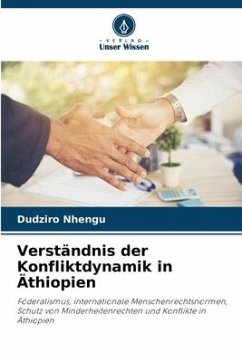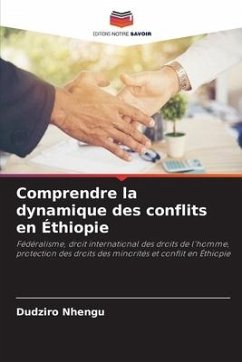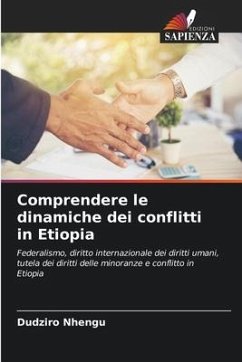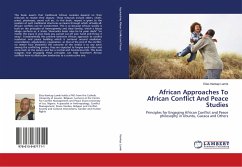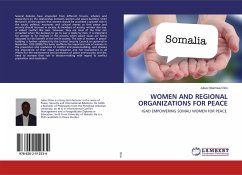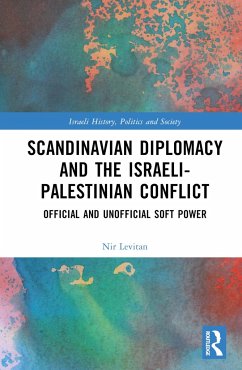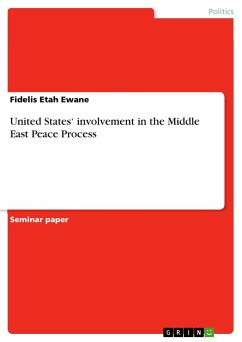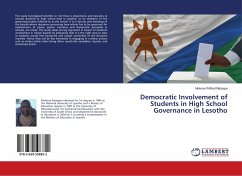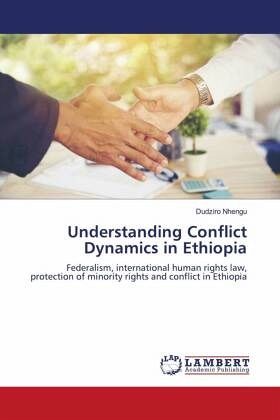
Understanding Conflict Dynamics in Ethiopia
Federalism, international human rights law, protection of minority rights and conflict in Ethiopia
Versandkostenfrei!
Versandfertig in 6-10 Tagen
29,99 €
inkl. MwSt.

PAYBACK Punkte
15 °P sammeln!
The book analyses the nexus between federalism, international human rights law, minority rights and the right to self-determination, noting in turn how the intersection of these affect the conflict regime in the Federal Democratic Republic of Ethiopia (FDRE). The merits and demerits of federalism as an enabler for democracy and peace are measured through an assessment of how the FDRE Constitutional provisions and practices have enabled successful management of ethnic diversities, promotion of good governance, observation of human rights and promoting principles of equality and equity among the...
The book analyses the nexus between federalism, international human rights law, minority rights and the right to self-determination, noting in turn how the intersection of these affect the conflict regime in the Federal Democratic Republic of Ethiopia (FDRE). The merits and demerits of federalism as an enabler for democracy and peace are measured through an assessment of how the FDRE Constitutional provisions and practices have enabled successful management of ethnic diversities, promotion of good governance, observation of human rights and promoting principles of equality and equity among the ethnic groups. The FDRE Constitution is assessed in terms of how it complies with IHRL, as well as how its leaders balance constitutional norm and practice. The analysis records a sharp irony and a huge gap between what the FDRE Constitution claims to provide for the citizens and what it enables in practice. This 'constitutionalism deficit' accounts for the rising levels of conflict in the country to date.





